Your cart is currently empty!
Tag: Data Center Facilities Management
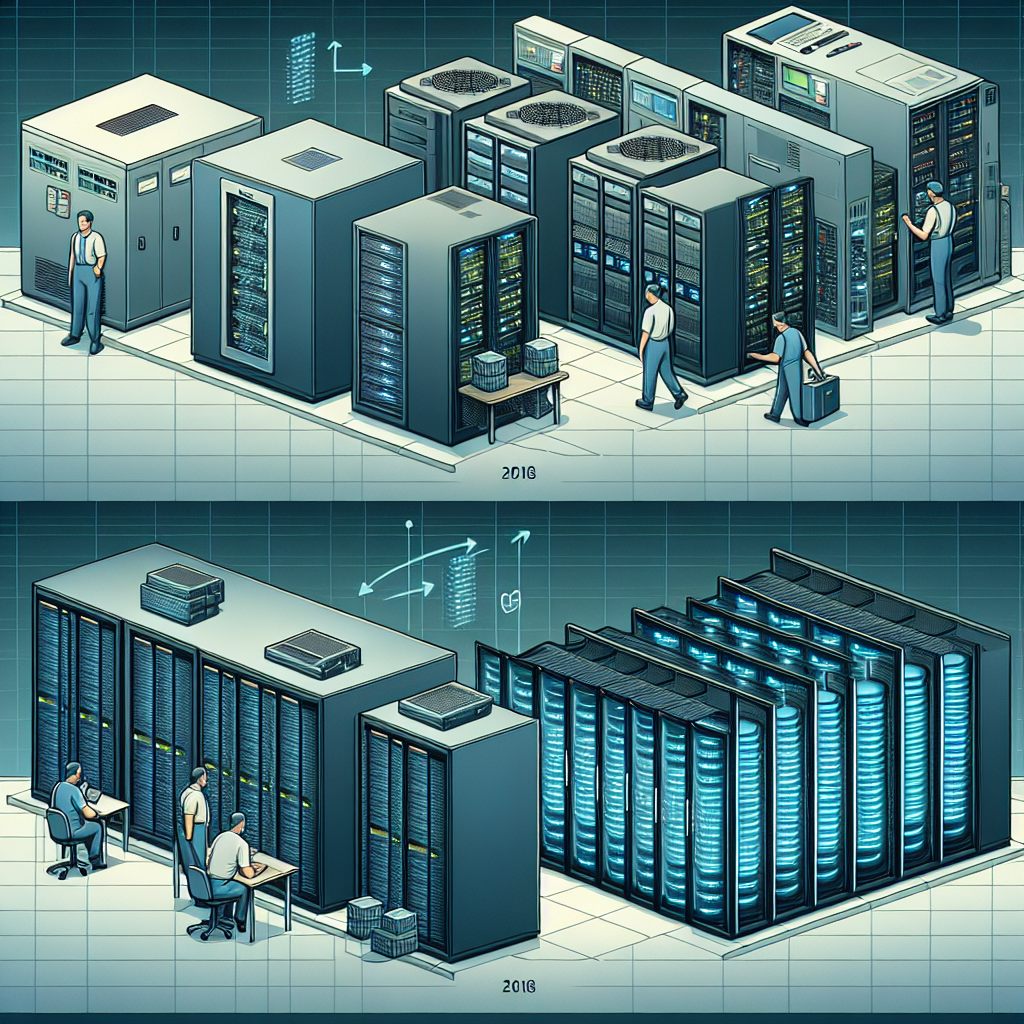
The Evolution of Data Center Facilities Management in the Digital Age
Data centers have become an essential component of modern businesses, housing the servers, storage, and networking equipment that power today’s digital economy. As the demand for digital services continues to grow, the management of data center facilities has evolved to meet the challenges of the digital age.In the past, data center facilities management was primarily focused on ensuring that the physical infrastructure of the data center, such as cooling systems, power distribution, and fire suppression, was operating efficiently and reliably. However, with the increasing complexity and scale of modern data centers, facility management has become much more sophisticated.
One of the key drivers of this evolution is the rise of cloud computing and virtualization technologies. These technologies have enabled businesses to consolidate their IT infrastructure and operate more efficiently, but they have also increased the complexity of managing data center facilities. Today, facility managers must not only ensure that the physical infrastructure is running smoothly, but also monitor and optimize the virtualized workloads running on servers.
Another factor driving the evolution of data center facilities management is the increasing importance of energy efficiency and sustainability. Data centers are notorious for their high energy consumption, and as businesses strive to reduce their carbon footprint, facility managers are under pressure to find ways to reduce energy usage and increase efficiency. This includes implementing advanced cooling systems, using renewable energy sources, and adopting energy-efficient hardware.
The digital age has also brought new challenges for data center facilities management, such as the need to ensure security and compliance with regulations. With the increasing threat of cyber attacks, facility managers must implement robust security measures to protect sensitive data and ensure the integrity of their infrastructure. They must also stay up to date with the latest regulations and standards governing data storage and processing.
In response to these challenges, data center facilities management has become more data-driven and automated. Advanced monitoring and analytics tools allow facility managers to track key performance metrics in real-time, identify potential issues before they become critical, and optimize the efficiency of their infrastructure. Automation technologies, such as robotic process automation and artificial intelligence, are also being used to streamline routine tasks and improve operational efficiency.
Overall, the evolution of data center facilities management in the digital age has been driven by the increasing complexity and scale of modern data centers, the growing importance of energy efficiency and sustainability, and the need to ensure security and compliance. By embracing new technologies and best practices, facility managers can meet these challenges and ensure that their data centers continue to support the digital economy.
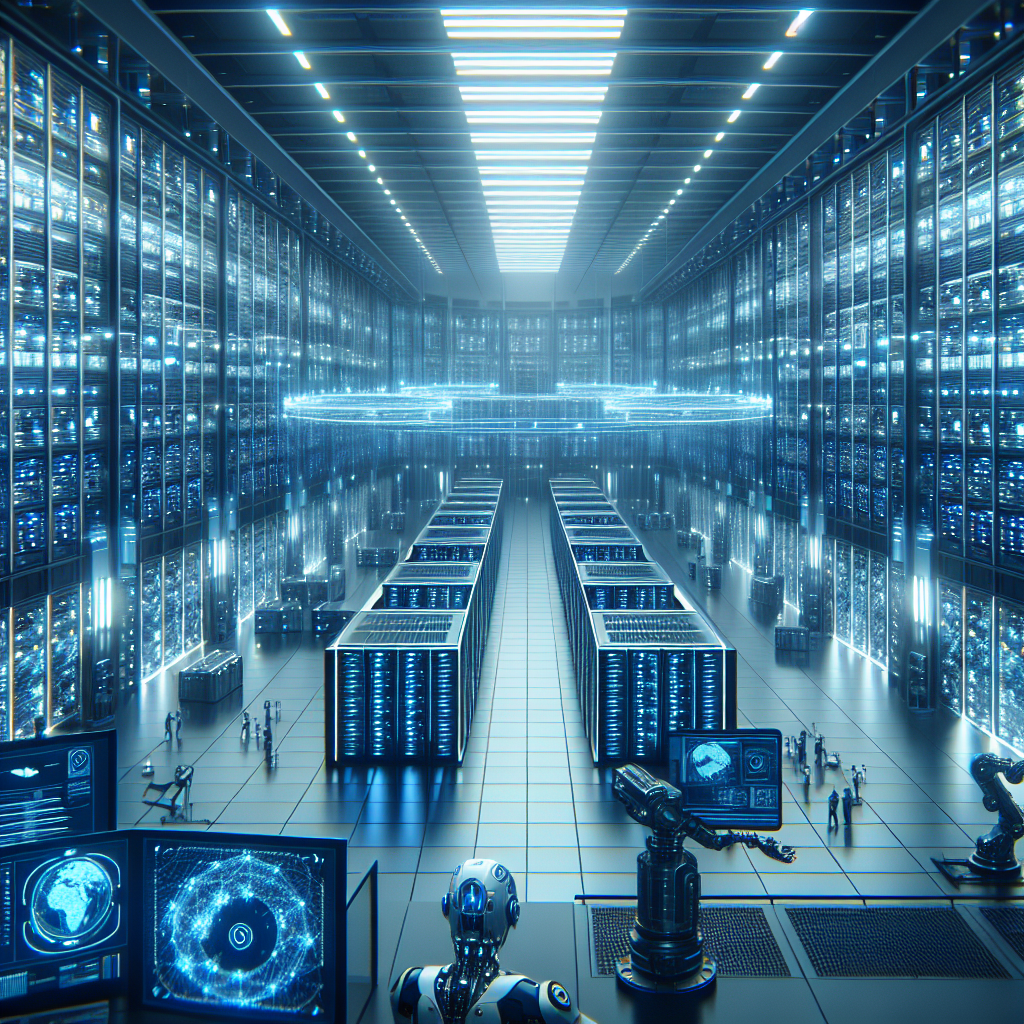
Innovative Technologies Shaping the Future of Data Center Facilities Management
Innovative Technologies Shaping the Future of Data Center Facilities ManagementData centers are the backbone of the digital world, housing the servers and networking equipment that power our online activities. With the increasing demand for data storage and processing power, data center facilities management has become a critical aspect of ensuring the efficiency and reliability of these facilities.
In recent years, there has been a surge in the development of innovative technologies that are reshaping the way data centers are managed. These technologies are not only improving the operational efficiency of data center facilities but also reducing costs and enhancing the overall performance of these critical infrastructures.
One of the key technologies that is revolutionizing data center facilities management is artificial intelligence (AI). AI-powered solutions are being used to analyze vast amounts of data and identify patterns and anomalies in real-time. This enables data center operators to predict and prevent potential issues before they occur, leading to improved uptime and operational efficiency.
Another innovative technology that is transforming data center facilities management is the Internet of Things (IoT). IoT devices, such as sensors and monitors, are being deployed in data centers to collect and transmit data on various aspects of facility operations, such as temperature, humidity, and power usage. By leveraging this data, data center operators can optimize their facilities for maximum efficiency and performance.
An emerging technology that is gaining traction in data center facilities management is edge computing. Edge computing involves processing data closer to where it is generated, reducing latency and improving the performance of applications that rely on real-time data processing. By deploying edge computing solutions in data centers, operators can improve the speed and reliability of their services, particularly for applications that require low latency, such as autonomous vehicles and augmented reality.
In addition to AI, IoT, and edge computing, data center operators are also exploring the use of virtual reality (VR) and augmented reality (AR) technologies for facilities management. These technologies enable operators to visualize and interact with data center equipment in a virtual environment, making it easier to identify potential issues and optimize the layout and design of the facility.
As data centers continue to play a vital role in supporting the digital economy, the adoption of innovative technologies in facilities management will be crucial for ensuring the efficiency and reliability of these critical infrastructures. By leveraging AI, IoT, edge computing, and VR/AR technologies, data center operators can optimize their facilities for maximum performance and stay ahead of the curve in the rapidly evolving digital landscape.
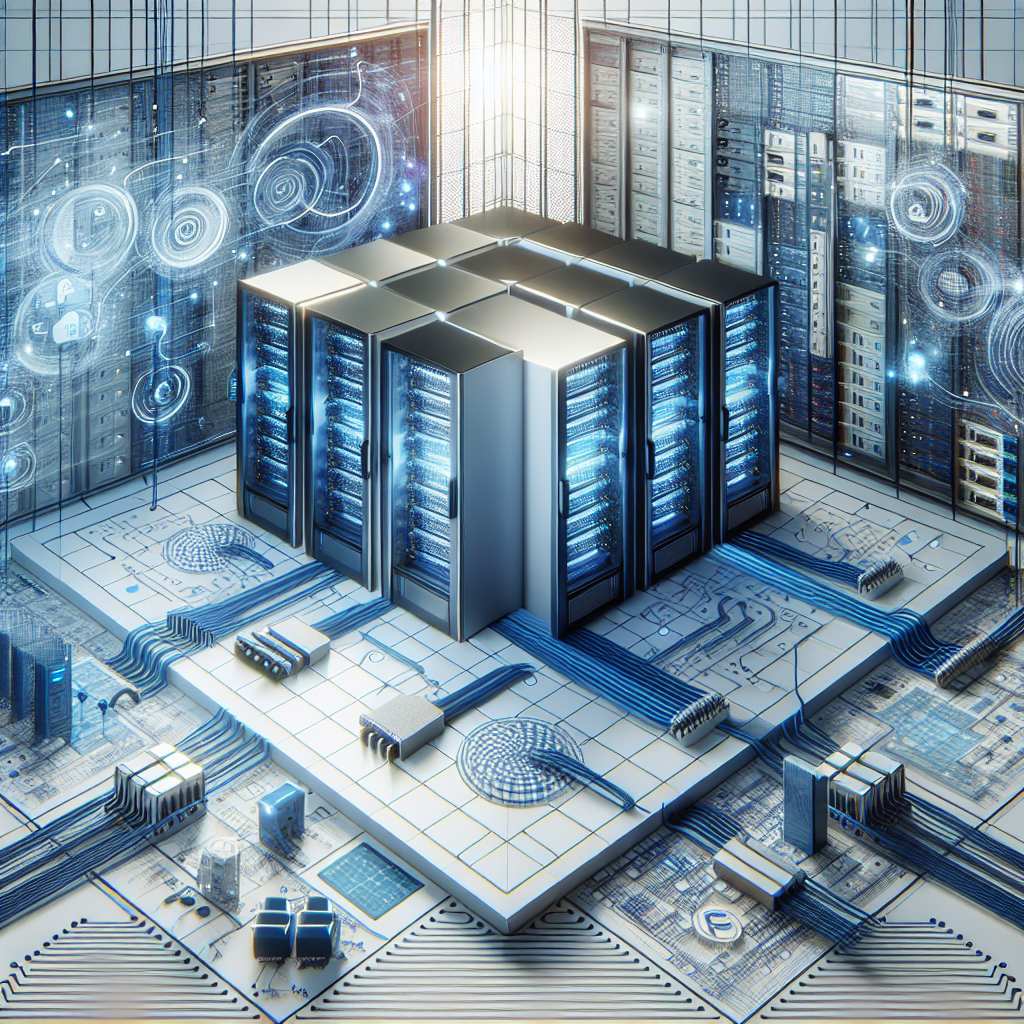
Key Considerations for Implementing Data Center Facilities Management Strategies
Data center facilities management is a critical aspect of ensuring the effective and efficient operation of data centers. As data centers play a crucial role in storing and processing data for businesses, it is essential to have a well-thought-out facilities management strategy in place to ensure optimum performance and reliability. Here are some key considerations to keep in mind when implementing data center facilities management strategies:1. Scalability: One of the most important factors to consider when implementing data center facilities management strategies is scalability. Data centers need to be able to accommodate the growing needs of businesses, so it is essential to have a plan in place to scale up the facilities as needed. This includes having the necessary infrastructure in place to support additional servers, storage, and networking equipment, as well as the ability to quickly deploy new resources when required.
2. Energy efficiency: Data centers are notorious for their high energy consumption, so it is important to implement energy-efficient practices to reduce operating costs and minimize the environmental impact. This includes using energy-efficient cooling systems, optimizing server utilization, and implementing best practices for power distribution and management.
3. Security: Data centers store sensitive and critical business data, so security is a top priority when it comes to facilities management. This includes physical security measures such as access control systems, surveillance cameras, and security guards, as well as cybersecurity measures to protect data from external threats.
4. Redundancy: To ensure high availability and reliability, data centers need to have redundancy built into their infrastructure. This includes redundant power supplies, cooling systems, networking equipment, and storage devices to minimize the risk of downtime due to equipment failures.
5. Monitoring and management: Monitoring and management tools are essential for ensuring the smooth operation of data center facilities. These tools provide real-time visibility into the performance and health of the infrastructure, allowing facility managers to quickly identify and address issues before they escalate into major problems.
6. Compliance: Data centers are subject to various regulations and industry standards, so it is important to ensure that facilities management strategies comply with all relevant requirements. This includes ensuring data security and privacy, as well as meeting environmental and safety standards.
In conclusion, implementing effective data center facilities management strategies is essential for ensuring the reliable and efficient operation of data centers. By considering factors such as scalability, energy efficiency, security, redundancy, monitoring and management, and compliance, businesses can optimize their data center operations and ensure the smooth running of their IT infrastructure.
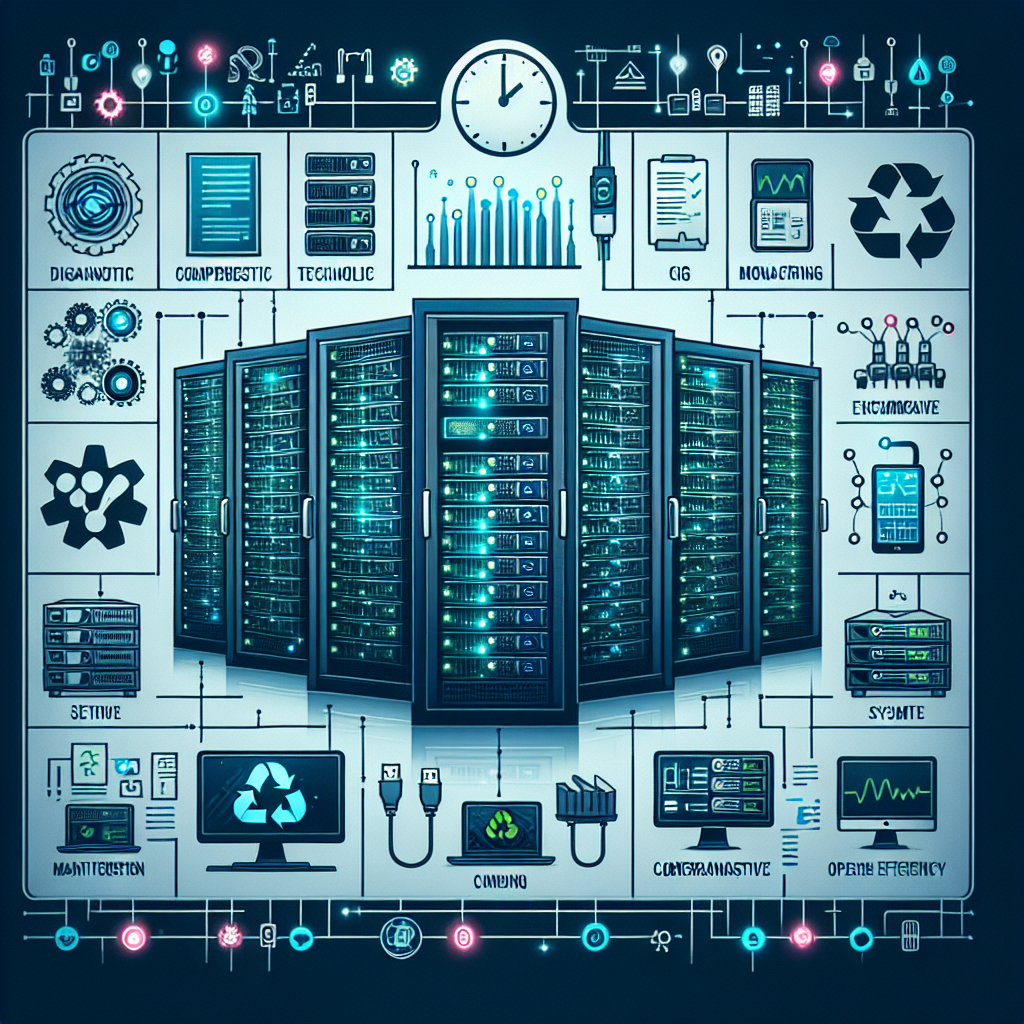
The Importance of Data Center Facilities Management in Ensuring Operational Efficiency
In today’s digital age, data centers play a crucial role in storing, processing, and managing vast amounts of data. These facilities are the backbone of modern business operations, providing the necessary infrastructure for organizations to run their applications, websites, and other digital services. Ensuring the efficient operation of data center facilities is essential to maintaining business continuity and meeting the growing demands of today’s data-driven world.One of the key factors in ensuring the operational efficiency of a data center is effective facilities management. Data center facilities management involves the monitoring and maintenance of the physical infrastructure that supports the IT equipment housed in the facility. This includes everything from power and cooling systems to security and access control measures.
Proper facilities management is essential for several reasons. First and foremost, it helps to ensure the reliability and availability of the IT infrastructure housed in the data center. By monitoring and maintaining critical systems such as power and cooling, facilities managers can prevent downtime and ensure that the data center operates at optimal performance levels.
Facilities management also plays a crucial role in maximizing energy efficiency and reducing operating costs. Data centers consume a significant amount of energy, and inefficient operations can lead to unnecessary expenses. By implementing energy-efficient practices and regularly monitoring and optimizing systems, facilities managers can help to reduce the data center’s carbon footprint and lower operating costs.
In addition to reliability and efficiency, facilities management is also important for ensuring the security and safety of the data center. Data centers house sensitive and valuable information, making them a prime target for cyber attacks and physical threats. Facilities managers must implement robust security measures, such as access controls, surveillance systems, and fire suppression systems, to protect the data center and the critical data it houses.
Overall, effective data center facilities management is essential for ensuring the operational efficiency and reliability of data centers. By monitoring and maintaining critical systems, optimizing energy efficiency, and enhancing security measures, facilities managers can help to ensure that data centers continue to meet the growing demands of today’s digital world. Investing in proper facilities management is crucial for businesses looking to maintain business continuity, minimize downtime, and meet the ever-increasing demands of their customers.
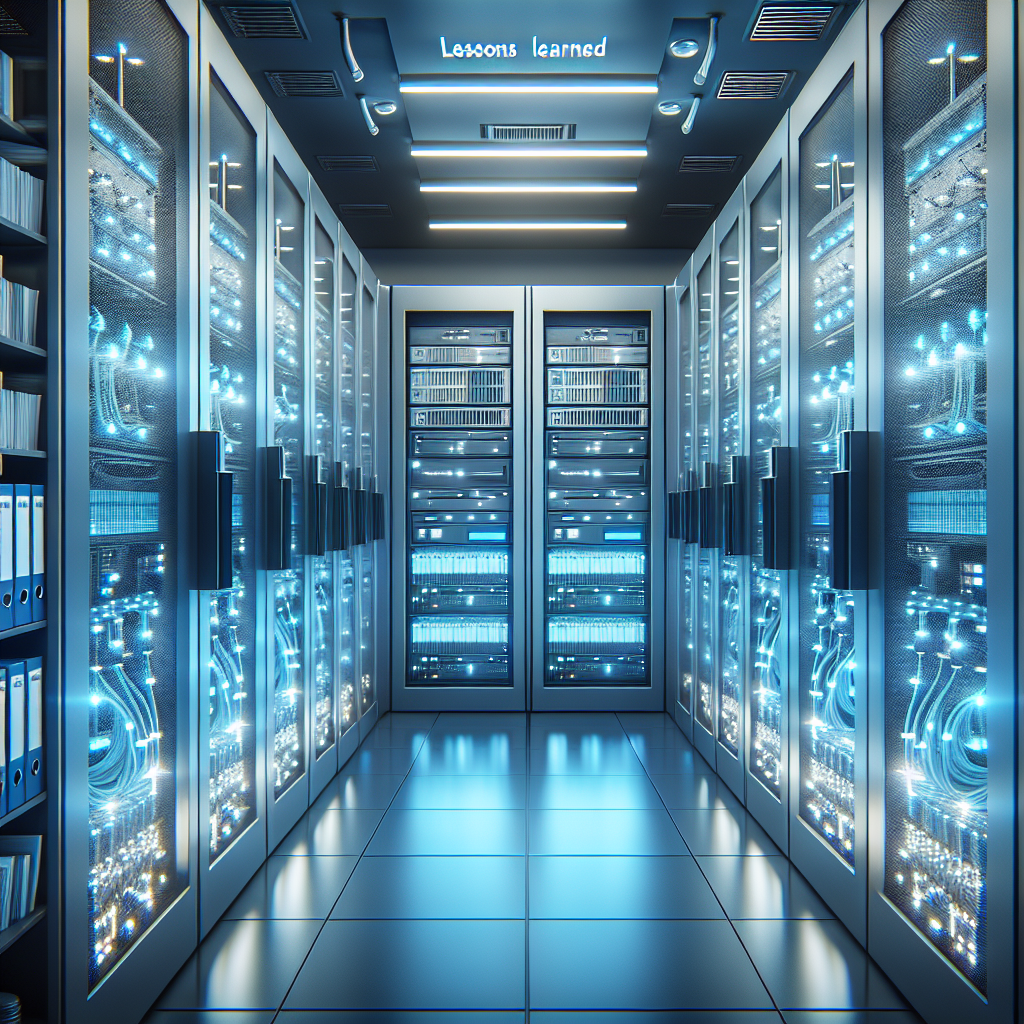
Case Studies in Effective Data Center Facilities Management: Lessons Learned and Best Practices
Data centers are the backbone of modern businesses, housing critical IT infrastructure and data that are essential for operations. Effective data center facilities management is crucial for ensuring the optimal performance, reliability, and security of these facilities. Case studies provide valuable insights into real-world scenarios and can offer lessons learned and best practices for managing data center facilities effectively.One key lesson learned from case studies in data center facilities management is the importance of proactive maintenance and monitoring. Regular maintenance and monitoring of critical infrastructure components such as cooling systems, power distribution units, and servers can help prevent downtime and costly repairs. In one case study, a large e-commerce company experienced a major outage due to a failure in their cooling system. After investigating the root cause, it was revealed that the cooling system had not been properly maintained, leading to the failure. This incident highlighted the importance of regular maintenance and monitoring to prevent such issues in the future.
Another best practice identified in case studies is the need for effective capacity planning. Data centers are constantly evolving, with new technologies and applications requiring additional resources. It is essential to have a clear understanding of current and future capacity requirements to ensure that the data center can support business growth. In a case study of a financial services company, the data center facilities management team implemented a comprehensive capacity planning process that included regular assessments of power and cooling requirements, server utilization, and storage capacity. This proactive approach helped the company avoid overloading their data center and ensured that they had the necessary resources to support their expanding operations.
Security is also a critical aspect of data center facilities management, and case studies have highlighted the importance of implementing robust security measures to protect sensitive data and infrastructure. In one case study, a healthcare organization suffered a data breach that compromised patient records due to a lack of proper security controls in their data center. Following the incident, the organization invested in enhanced security measures such as biometric access controls, video surveillance, and encryption of data at rest and in transit. These measures helped improve the security posture of the data center and prevent future breaches.
In conclusion, case studies in effective data center facilities management offer valuable insights and lessons learned for organizations looking to optimize the performance and reliability of their data centers. By implementing proactive maintenance and monitoring, effective capacity planning, and robust security measures, businesses can ensure that their data center facilities are well-managed and able to support their operations effectively. By learning from the experiences of others, organizations can avoid common pitfalls and best practices in data center facilities management.
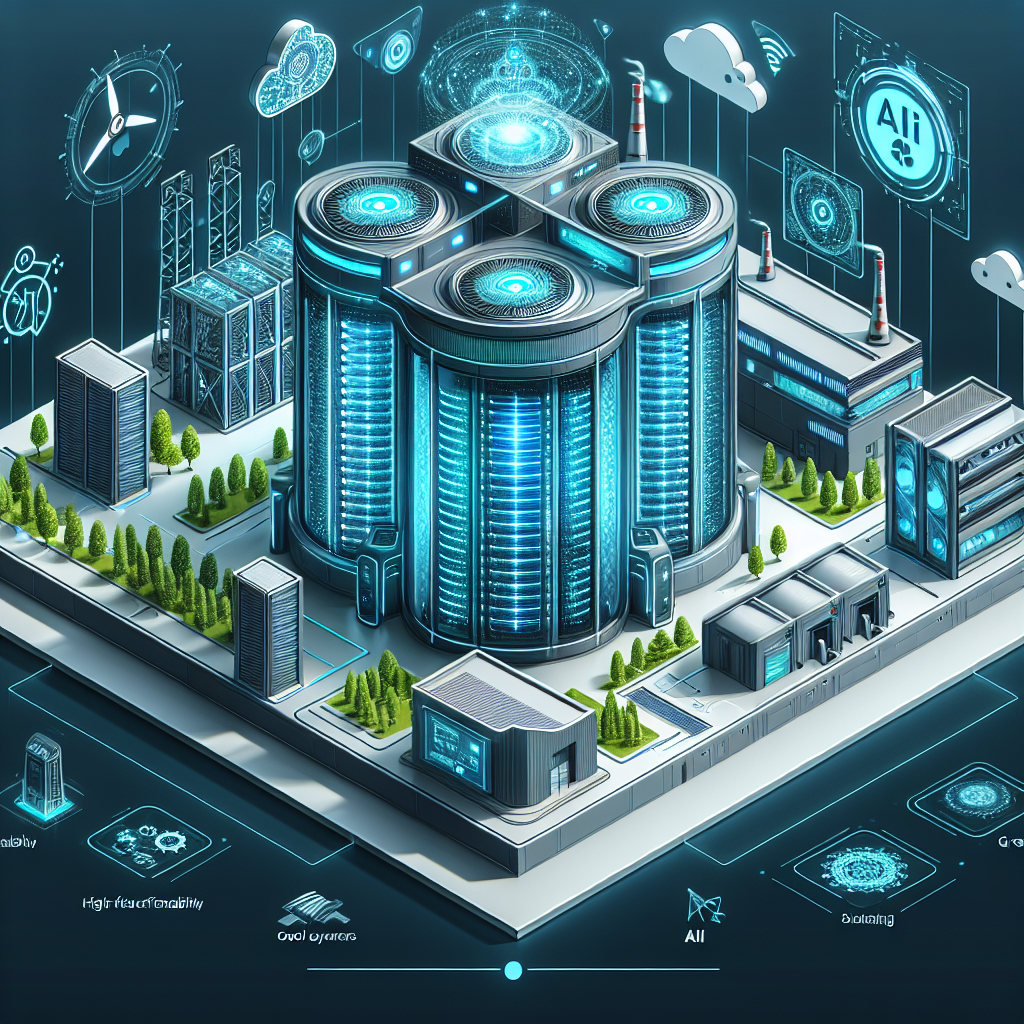
The Future of Data Center Facilities Management: Predictions and Strategies for Success
Data center facilities management is a crucial aspect of any organization’s IT infrastructure. As technology continues to evolve at a rapid pace, so too must the strategies and techniques used to manage and maintain data center facilities. In this article, we will explore some predictions for the future of data center facilities management and discuss strategies for success in this ever-changing landscape.One of the key trends that is likely to shape the future of data center facilities management is the increasing focus on sustainability and energy efficiency. With the rising costs of energy and growing concerns about the environmental impact of data centers, organizations are under increasing pressure to find ways to reduce their energy consumption and carbon footprint. This will require data center managers to implement innovative solutions such as using renewable energy sources, improving cooling systems, and optimizing server utilization to minimize energy waste.
Another important trend that is likely to impact the future of data center facilities management is the increasing complexity of IT infrastructures. As organizations adopt new technologies such as cloud computing, virtualization, and artificial intelligence, the demands placed on data center facilities will continue to grow. This will require data center managers to develop new skills and expertise in managing complex, hybrid IT environments and integrating diverse technologies to ensure optimal performance and reliability.
In order to succeed in this evolving landscape, data center managers will need to adopt a proactive and strategic approach to facilities management. This will involve implementing comprehensive monitoring and management tools to track performance metrics, identify potential issues, and take corrective action before problems escalate. It will also require data center managers to collaborate closely with other IT departments and business units to align data center operations with overall business goals and objectives.
One strategy that is likely to become increasingly important in the future of data center facilities management is the use of automation and artificial intelligence. By leveraging AI-powered tools and technologies, data center managers can streamline routine tasks, improve efficiency, and enhance the overall performance of their facilities. This will free up valuable time and resources for data center managers to focus on more strategic initiatives, such as optimizing infrastructure, developing disaster recovery plans, and implementing security measures.
Overall, the future of data center facilities management is likely to be characterized by increased complexity, growing demands for sustainability and energy efficiency, and the adoption of new technologies such as automation and AI. By staying ahead of these trends, developing new skills and expertise, and implementing proactive and strategic management practices, data center managers can ensure the success of their facilities in the years to come.

Ensuring Compliance and Sustainability in Data Center Facilities Management
Data centers are the backbone of modern businesses, serving as the hub for all digital operations and storage. With the increasing reliance on technology, data centers are constantly evolving to meet the growing demands of the digital age. However, along with this evolution comes the need for ensuring compliance and sustainability in data center facilities management.Compliance in data center facilities management is crucial to ensure that the center meets all regulatory requirements and industry standards. Failure to comply with these regulations can result in hefty fines, damage to reputation, and even legal action. Therefore, it is essential for data center managers to stay up-to-date on the latest regulations and ensure that their facility is in full compliance at all times.
One of the key aspects of compliance in data center facilities management is ensuring the security of data. Data centers store vast amounts of sensitive information, making them a prime target for cyber-attacks. Data center managers must implement robust security measures to protect against breaches and ensure the integrity and confidentiality of data.
In addition to security, data center managers must also focus on sustainability in facilities management. Data centers are notorious for their high energy consumption, with some centers consuming as much electricity as a small town. To reduce their environmental impact, data centers must implement energy-efficient practices, such as using energy-efficient cooling systems, optimizing server utilization, and implementing renewable energy sources.
Furthermore, data center managers should also focus on reducing water consumption, minimizing waste, and implementing recycling programs to promote sustainability in data center facilities management. By adopting green practices, data centers can not only reduce their environmental impact but also save on operating costs in the long run.
To ensure compliance and sustainability in data center facilities management, data center managers must prioritize regular audits and assessments of their facility. These audits can help identify any areas of non-compliance or inefficiency and allow managers to implement corrective actions promptly.
Additionally, data center managers should invest in training and development programs for their staff to ensure they are well-equipped to handle compliance and sustainability issues. By providing ongoing training, data center managers can ensure that their staff is up-to-date on the latest regulations and best practices in data center facilities management.
In conclusion, ensuring compliance and sustainability in data center facilities management is essential for the long-term success and viability of data centers. By prioritizing security, energy efficiency, and environmental sustainability, data center managers can not only meet regulatory requirements but also reduce their environmental impact and operating costs. Through regular audits, training programs, and a commitment to continuous improvement, data center managers can ensure that their facility remains compliant and sustainable in the ever-evolving digital landscape.
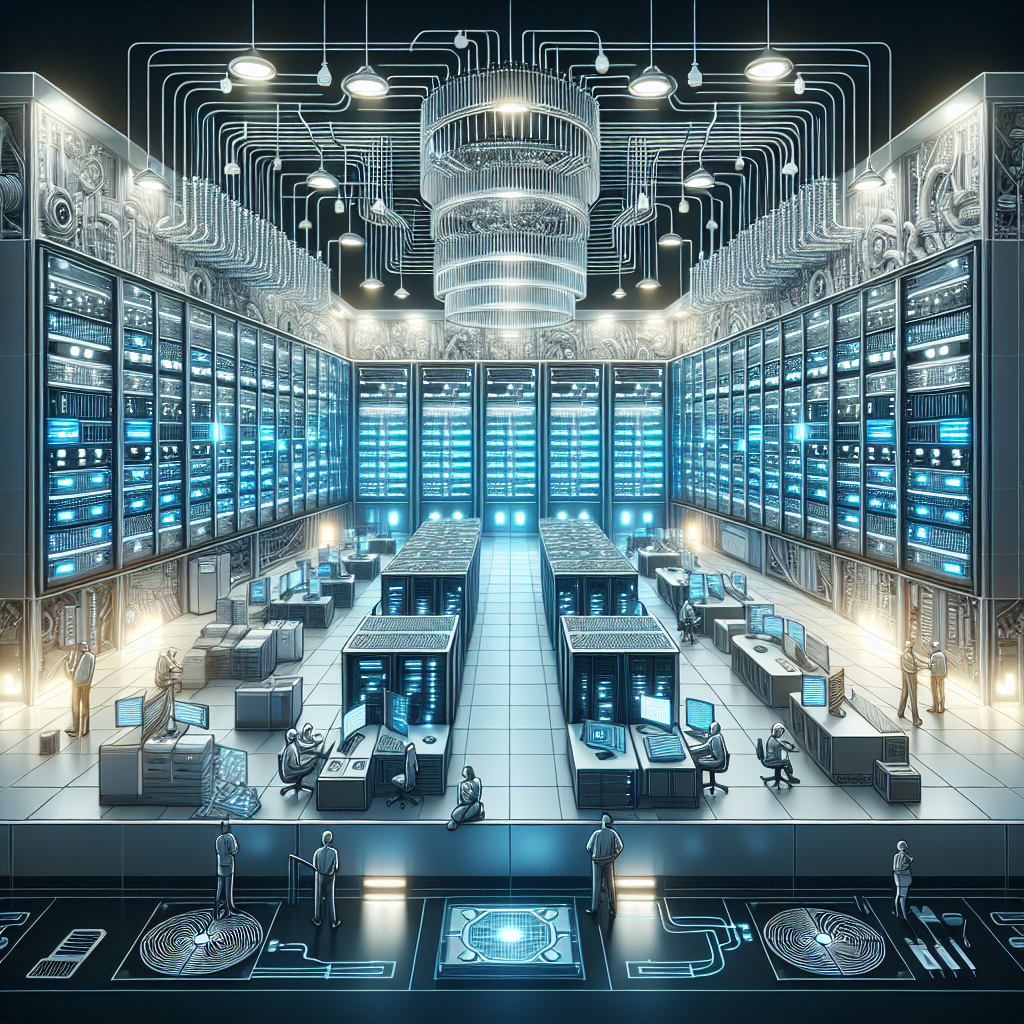
Key Considerations for Designing and Building a Modern Data Center Facility
Designing and building a modern data center facility is a complex and critical task that requires careful planning and consideration. With the increasing demand for data storage and processing capabilities, it is essential to create a facility that can meet the needs of today’s businesses while also being scalable and efficient for future growth. There are several key considerations that must be taken into account when designing and building a modern data center facility.First and foremost, one of the most important considerations is the location of the data center facility. The location of the facility can have a significant impact on its efficiency and effectiveness. It is important to consider factors such as access to power and water sources, proximity to telecommunication networks, and the risk of natural disasters. Additionally, the location should be easily accessible for maintenance and servicing, as well as compliance with local regulations and building codes.
Another key consideration is the design and layout of the data center facility. The layout should be carefully planned to optimize space utilization and ensure efficient airflow and cooling. It is important to consider factors such as server density, rack layout, and cable management in order to maximize efficiency and minimize downtime. Additionally, the facility should be designed with scalability in mind, allowing for easy expansion as needed.
In terms of infrastructure, it is important to invest in high-quality equipment and technology to ensure the reliability and performance of the data center facility. This includes selecting the right servers, storage devices, networking equipment, and cooling systems. It is also essential to implement backup and disaster recovery solutions to protect data and minimize downtime in the event of a failure.
Security is another critical consideration when designing and building a modern data center facility. Data centers store and process sensitive and valuable information, making them a target for cyber attacks and physical breaches. It is important to implement robust security measures such as access controls, surveillance systems, and fire suppression systems to protect data and ensure compliance with regulations.
Finally, it is important to consider the environmental impact of the data center facility. Data centers consume a significant amount of energy, so it is important to design and build a facility that is energy-efficient and environmentally friendly. This can include using energy-efficient equipment, implementing renewable energy sources, and optimizing cooling systems to reduce energy consumption and carbon emissions.
In conclusion, designing and building a modern data center facility requires careful planning and consideration of various factors. By taking into account factors such as location, design, infrastructure, security, and environmental impact, businesses can create a data center facility that meets their needs for today and into the future. By investing in a well-designed and efficient data center facility, businesses can ensure the reliability, performance, and security of their IT infrastructure.

The Benefits of Outsourcing Data Center Facilities Management: Cost Savings and Expertise
In today’s digital age, data centers are becoming increasingly essential for businesses to store, manage, and process their vast amounts of data. With the rise of cloud computing and the Internet of Things, the demand for data center facilities management is higher than ever before. Many businesses are turning to outsourcing data center facilities management as a cost-effective and efficient solution.One of the main benefits of outsourcing data center facilities management is cost savings. Managing a data center in-house can be incredibly expensive, as it requires a significant investment in infrastructure, equipment, and personnel. By outsourcing this task to a third-party provider, businesses can reduce their operating costs and free up capital for other strategic initiatives.
Outsourcing data center facilities management also allows businesses to tap into the expertise and experience of a specialized team of professionals. Data center management requires a high level of technical knowledge and skills, which can be difficult to find and retain in-house. By partnering with a reputable data center facilities management provider, businesses can benefit from the expertise of experienced professionals who are dedicated to ensuring the security, reliability, and performance of their data centers.
Additionally, outsourcing data center facilities management can help businesses improve their operational efficiency and scalability. A third-party provider can offer advanced monitoring and management tools, as well as best practices and industry standards, to optimize the performance of the data center and ensure maximum uptime. This can help businesses better meet the demands of their customers and adapt to changing market conditions.
Furthermore, outsourcing data center facilities management can also help businesses mitigate risks and ensure compliance with regulatory requirements. Data centers are subject to a variety of security threats, including cyberattacks, natural disasters, and equipment failures. By partnering with a reputable data center facilities management provider, businesses can benefit from advanced security measures, disaster recovery plans, and compliance audits to protect their data and ensure business continuity.
In conclusion, outsourcing data center facilities management offers businesses a cost-effective and efficient solution to managing their data centers. By partnering with a specialized provider, businesses can benefit from cost savings, expertise, operational efficiency, scalability, risk mitigation, and compliance assurance. Overall, outsourcing data center facilities management can help businesses focus on their core competencies and drive innovation and growth in today’s digital economy.
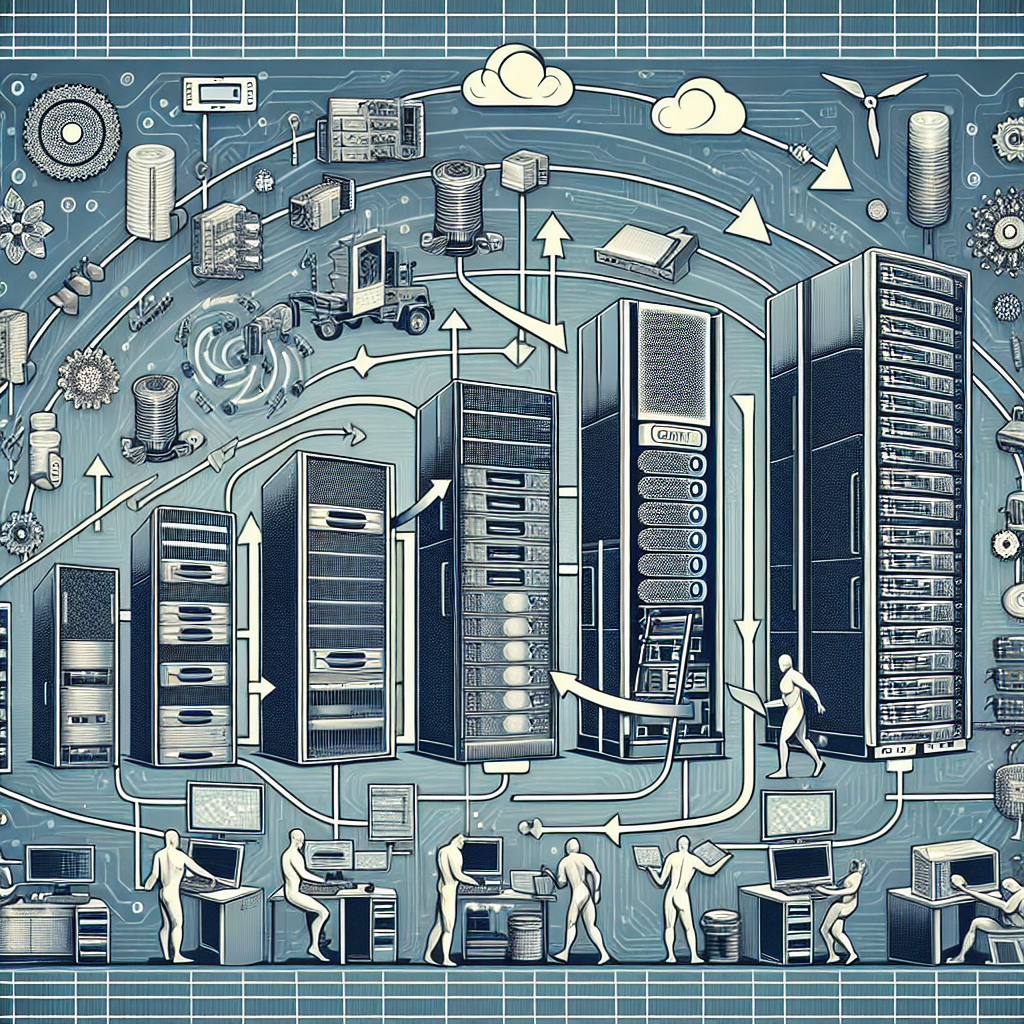
How Data Center Facilities Management is Evolving to Meet the Demands of the Digital Age
In today’s digital age, data centers play a crucial role in storing, processing, and managing vast amounts of data. As the demand for digital services continues to grow, data center facilities management is evolving to meet the ever-increasing needs of businesses and consumers.One of the key ways in which data center facilities management is evolving is through the adoption of new technologies. Data centers are increasingly utilizing automation, artificial intelligence, and machine learning to improve efficiency, reduce downtime, and enhance security. These technologies allow data center managers to monitor and manage their facilities in real-time, identify potential issues before they become major problems, and optimize performance to meet the demands of the digital age.
Another important aspect of data center facilities management that is evolving is sustainability. With the growing focus on environmental responsibility, data centers are implementing green technologies and practices to reduce their carbon footprint. This includes using energy-efficient equipment, implementing cooling systems that use less energy, and utilizing renewable energy sources like solar and wind power. By prioritizing sustainability, data centers can not only reduce their impact on the environment but also lower operating costs and improve their reputation among customers and stakeholders.
In addition to technology and sustainability, data center facilities management is also evolving in terms of security. With the increasing number of cyber threats and data breaches, data centers are implementing advanced security measures to protect their infrastructure and data. This includes using encryption, multi-factor authentication, and biometric access controls to prevent unauthorized access and protect sensitive information. Data center managers are also investing in training for their staff to ensure they are knowledgeable about cybersecurity best practices and can respond effectively to potential threats.
Overall, data center facilities management is evolving to meet the demands of the digital age by embracing new technologies, prioritizing sustainability, and enhancing security measures. By staying ahead of the curve and adapting to the changing landscape of technology and data management, data centers can continue to play a vital role in supporting the digital economy and meeting the needs of businesses and consumers around the world.
